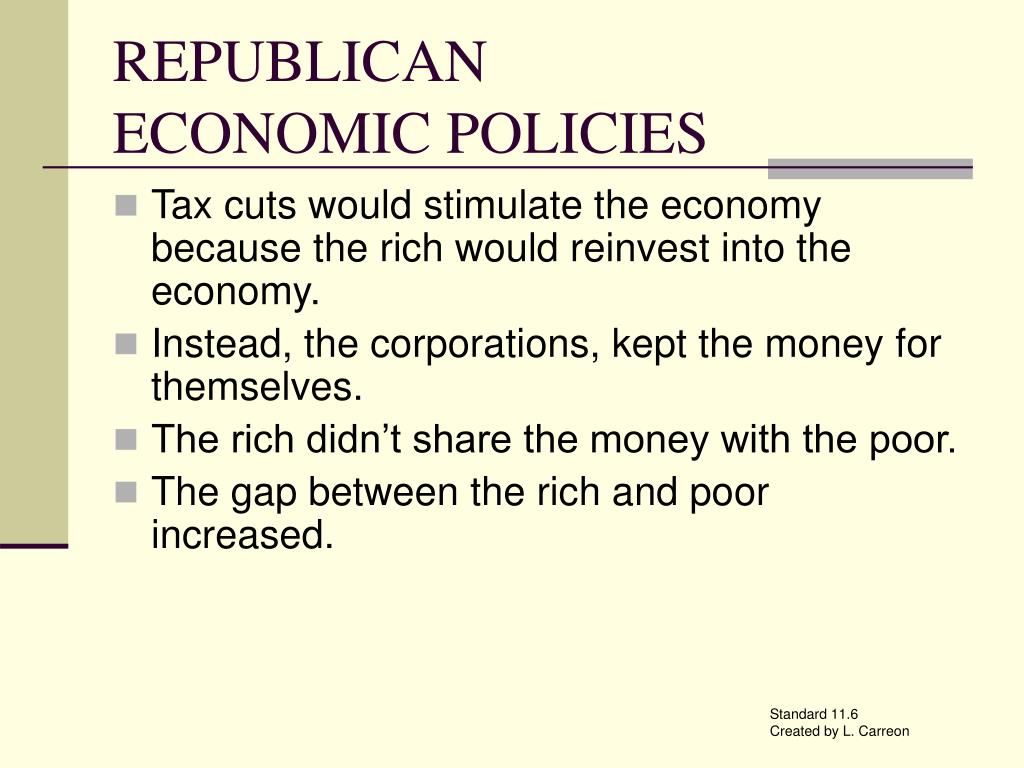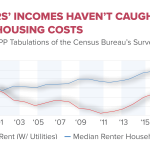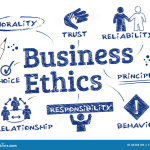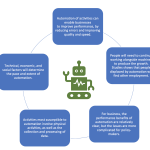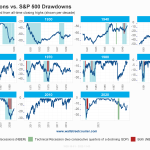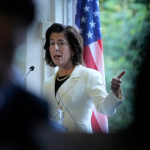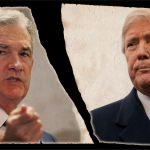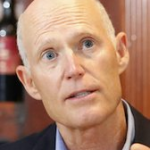Republican economic policies, often viewed through the lens of traditional GOP economic orthodoxy, have evolved significantly over the decades. As economist Oren Cass highlights, these policies sometimes stray far from their original intent to bolster the labor force and support American households. Emphasizing free-market principles, figures like Cass have critiqued the singular focus on deregulation and unfettered trade that characterized the late 20th century. This critique echoes the complex legacy of Reaganomics, where despite its celebration of free enterprise, the economic landscape revealed stark realities of wage stagnation and reliance on government support. As we navigate the changing dynamics of labor force development, understanding these evolving policies is crucial for fostering a robust economic future in the U.S.
The economic strategies championed by the Republican Party have undergone significant scrutiny, particularly as new generations of policymakers re-evaluate the principles of fiscal conservatism. Armed with insights from influential conservative thinkers like Oren Cass, there is a growing discourse around the effectiveness of free-market ideologies and their implications for American households. This dialogue raises critical questions about labor market development and the enduring impact of policies rooted in what many now label as GOP economic orthodoxy. By examining the historical context of these shifts, from the protectionist measures of past leaders to the enduring legacy of Reagan’s economic reforms, we can better understand the nuances of modern conservative economic thought.
The Flaws of GOP Economic Orthodoxy
Historically, Republican economic policies, often encapsulated by the term “GOP economic orthodoxy,” have diverged significantly from the practices of earlier Republican leadership. Economist Oren Cass emphasizes this disconnect by tracing back how previous presidents like Abraham Lincoln and Ronald Reagan adopted tariffs and other protective measures to uplift domestic industries and protect wage earners. These actions starkly contrast the modern libertarian principles that have come to dominate the party, which prioritize deregulatory measures and a free-market approach. As such, the current economic strategies might be rooted more deeply in ideology than in empirical effectiveness.
Cass points out that the singular focus on deregulation and facilitating unfettered trade has not benefitted American households to the extent promised. The reliance on deregulation has not led to the intended outcomes, exemplifying the assertion that the execution of GOP economic policies lacks the efficacy required to address today’s economic challenges. As evidence, he presents data on stagnant wage growth and increasing trade deficits, highlighting the pressing need for a reevaluation of the Republican Party’s contemporary economic strategies.
Reconsidering Reaganomics in Today’s Context
Ronald Reagan remains a pivotal figure in discussions regarding conservative economic policies, often hailed as the architect of what is dubbed “Reaganomics.” However, Cass challenges the traditional view of Reagan as a strict advocate of free-market principles, arguing that Reagan’s administration was characterized by a more nuanced approach that included protective tariffs and strategic tax increases. This historical legacy provides a crucial perspective in evaluating the effectiveness of economic policies and the need for adaptation in modern times. Cass argues that acknowledging the complexity of Reagan’s policies can lead to a more accurate understanding of how Republican economic narratives have evolved.
Moreover, Cass’s observations suggest that the hallmark of Reagan’s economic philosophy—minimizing government intervention—has metamorphosed into a rigid adherence to unfettered capitalism. This deviation has led to economic stagnation for many American families, as the prioritization of libertarian economic models has overshadowed the principles of labor force development and community empowerment. By reflecting on Reagan’s mixed legacy, policymakers can reassess the fundamental objectives of their economic strategies, aiming to align them with broader goals of social and economic progress.
The Role of Labor Force Development
Cass underscores the necessity of labor force development as a cornerstone of any viable economic strategy, contrasting sharply with the current emphasis on consumerism prevalent in libertarian circles. He articulates the importance of a thriving labor market in not only bolstering individual family units but also in fostering a robust economy that is self-sustaining. In its absence, the focus on cheap goods and short-term consumer benefits has led to detrimental offshoring and an overreliance on government assistance programs. By prioritizing labor-force development, policymakers can create an environment that supports sustainable, long-term economic growth and family stability.
The shift towards labor force development resonates with the criticisms that have emerged from both ends of the political spectrum, revealing a growing consensus on the need for renewed focus on worker empowerment. Cass believes that strengthening the labor force will ultimately lead to a resurgence of the middle class, revitalizing communities and reinforcing the social fabric. This approach serves as a counter-narrative to the prevailing belief that deregulation alone will yield prosperity, thus challenging GOP orthodoxy to embrace a more inclusive, worker-centric economic policy.
The Intersection of Social Conservatism and Economic Policy
The melding of social conservatism with economic strategies is a significant theme in Cass’s critique of contemporary GOP practices. He argues that traditional conservative values have often been sidelined in favor of a narrow focus on economic libertarianism, which neglects the holistic development of communities and families. By intertwining economic policies with social ideals, conservatives can forge a stronger relationship between personal financial stability and broader societal welfare, advocating for a system where the market serves as a means of enhancing the quality of life.
Cass’s argument highlights the necessity of accountability and ethical considerations within economic frameworks, inviting policymakers to assess how economic strategies align with conservative values. This intersection could redefine Republican economic policies, shifting from a purely transactional approach to one that prioritizes human flourishing, community stability, and moral responsibility. The potential for a revitalized conservative economic agenda grounded in family and community needs remains a significant opportunity for future Republican candidates.
Market Fundamentalism and Its Consequences
Oren Cass signals a critical examination of market fundamentalism, which has permeated GOP economic policies, leading to unintended consequences for American households. He asserts that the current model prioritizes individual consumption over the communal aspect of economic participation. This myopic vision has resulted in the increasing inequality and economic disenfranchisement observed across many communities in the country. Cass’s analyses challenge the notion that free markets can rectify systemic issues without thoughtful intervention and oversight.
The consequences of adhering strictly to market fundamentalism have manifested in alarming ways, such as wage stagnation and rising reliance on government welfare programs. This reality calls for a significant rethinking of economic orthodoxy among Republicans, ensuring that policies promote not only economic growth but also social cohesion. Cass advocates for a model where the market serves as a tool to support community and labor advancement, stressing that it should catalyze rather than replace government efforts aimed at fostering equitable opportunities.
The Evolution of Conservative Economic Coalitions
Cass illustrates the historical shifts within Republican coalitions that have influenced economic policies over the decades. Originally, the partnership between social conservatives, economic libertarians, and national security hawks proved to be a formidable force, particularly during the Cold War. However, the dissolution of this coalition following the geopolitical changes in the late 20th century left economic libertarians to dominate the conversation. With much of the party’s focus now on tax cuts and deregulation, the potential for collaborative, multifaceted economic approaches has significantly diminished.
This fracturing highlights the importance of reestablishing a functional balance among the different factions within the Republican Party to create cohesive economic policies that reflect a variety of perspectives. Cass emphasizes the need for these groups to unite on common issues, such as labor development and social responsibility, rather than allowing economic libertarian principles to dictate the party’s entire economic agenda. Such a recalibration stands to strengthen the Republican brand by appealing to a broader base and addressing pressing American economic issues together.
Critiques of the Conservative Approach to Aid Programs
The growing dependency on federal aid programs, such as Social Security and veterans’ benefits, becomes a point of contention in discussions about economic policies. Cass critiques the conservative approach to these programs, asserting that rather than viewing them as a last resort, there’s often an attitude that encourages a surplus of reliance on governmental support. This outlook poses a risk for the future viability of conservative economic policies, suggesting the necessity for a transition towards empowerment and community-driven economic models that can ultimately help individuals thrive without overwhelming dependence on aid.
By addressing the flaws in the current reliance on federal programs, Cass advocates for a shift in conservative thinking, emphasizing the need to design policies that not only provide immediate assistance but also promote long-term independence through meaningful job creation and workforce development initiatives. The conversation shifts from merely questioning the sustainability of government programs to fostering an economic environment that inspires personal initiative and growth, reinforcing a belief in individual capabilities and the importance of community ties.
Connecting Economics to Family Welfare
At the crux of Cass’s critique lies the connection between economic strategies and family welfare. He argues that effective economic policies should result in tangible improvements in the lives of families, enabling them to thrive. Historically, Republican economic policies have oscillated between extremes that either neglect familial needs or prioritize short-term economic gains without adequate consideration of their long-term impacts on families. This misalignment highlights the pressing need for an economic agenda that puts family welfare front and center.
By integrating family considerations into economic policy discussions, Cass advocates for an approach that redefines prosperity in terms of family stability and community health. Such a shift in paradigm not only addresses the immediate economic needs of families but also establishes a framework for sustainable development where the economy serves as a pillar for strong familial structures. Enhancing the conversation around family impacts reestablishes the Republican commitment to human flourishing in economic dialogue.
The Future of Economic Policies within the Republican Party
As the Republican Party navigates through the complexities of post-COVID economics, the future of its policies hangs under scrutiny. Cass asserts that a reevaluation of traditional economic approaches is not only necessary but inevitable if the party aims to remain relevant to the changing landscape of American lives. Engaging with concepts that prioritize inclusive economic development may open pathways to regain trust among voters who feel neglected by the current economic orthodoxy.
The evolution of the party’s economic strategy will likely necessitate a greater emphasis on policies that encompass both traditional conservative values and modern economic realities. By harnessing a renewed focus on labor force development, family welfare, and community investment, the Republican Party can cultivate a more holistic economic stance that resonates with a diverse electorate, inviting collaboration among previously divergent factions for a shared economic future.
Frequently Asked Questions
How do Republican economic policies differ from traditional free-market approaches?
Republican economic policies, especially those rooted in GOP economic orthodoxy, often emphasize a balance between free markets and labor force development. While traditional free-market proponents focus solely on deregulation and free trade, as critiqued by economists like Oren Cass, Republicans historically have prioritized strengthening the labor force to support American families.
What is Reaganomics and how does it relate to modern Republican economic policies?
Reaganomics refers to the economic policies advocated by Ronald Reagan, emphasizing tax cuts, deregulation, and free-market principles. However, Oren Cass suggests that this interpretation of GOP economic orthodoxy overlooks Reagan’s more protectionist measures and support for labor, indicating a need for modern Republicans to reassess these principles in light of today’s economic challenges.
What criticisms do free-market economists have regarding GOP economic policies?
Free-market economists often criticize GOP economic policies for overemphasizing deregulation and unfettered trade, claiming these strategies have not delivered for American households. Oren Cass highlights that this focus has ignored the importance of labor force development, which is essential for sustaining strong family units and economic growth.
In what ways has the GOP economic orthodoxy evolved since the Reagan era?
The GOP economic orthodoxy has evolved from a focus on Reagan-era market fundamentalism to a recognition of the need for balancing economic growth with labor force development. Oren Cass points out that historical Republican leaders employed tariffs and active labor policies to support American workers, suggesting a departure from the singular focus on deregulation that has become prevalent in recent decades.
How do contemporary Republicans view the role of government in the economy?
Contemporary Republicans are increasingly recognizing the role of government in establishing rules and institutions that promote productive economic outcomes. Oren Cass argues that an effective economic policy must empower workers, encourage domestic investment, and strengthen social fabric, moving beyond the traditional laissez-faire approach seen in overemphasized free-market policies.
What is the relationship between GOP economic policies and American wage growth?
GOP economic policies have been criticized for failing to stimulate significant wage growth, despite rising GDP. Oren Cass illustrates this disconnect by showing that while the financial sector has thrived, the average American household has experienced stagnation in wages, which underscores the need for a reevaluation of current Republican economic strategies.
Why is labor force development critical to Republican economic policies?
Labor force development is critical to Republican economic policies as it addresses the foundational issue of maintaining strong families and communities. As Oren Cass argues, prioritizing labor development over mere consumerism ensures the economy serves wider social purposes, ultimately leading to sustainable economic growth and personal well-being.
What impact has deregulation had on the American economy from a Republican perspective?
From a Republican perspective, deregulation was intended to stimulate economic growth; however, Oren Cass posits that it has largely contributed to offshoring and an increasing reliance on government assistance. This critique calls into question whether the reduction in regulation has truly served the interests of American workers or households.
What role do tariffs play in the current GOP economic policies?
Tariffs are experiencing a resurgence in GOP economic policies as Republicans acknowledge their historical use by leaders like Lincoln and Reagan to protect domestic industries. Oren Cass advocates for a reexamination of tariffs as a tool for supporting American workers and revitalizing the labor force, contrasting with previous free-trade dogmas.
How do the ideas of Oren Cass reflect the future of Republican economic policies?
Oren Cass’s ideas reflect a shift towards a more holistic view of economic policy among contemporary Republicans, focusing not just on free-market principles but also on labor force development and social welfare. His critiques of established GOP economic orthodoxy suggest a potential alignment with broader concerns about American economic sustainability and the well-being of its workforce.
| Key Points | |
|---|---|
| Republican economic policies have historically deviated from current GOP orthodoxy, with many past presidents advocating for a stronger labor force and protectionist measures. | Oren Cass critiques the focus on deregulation and free trade, arguing that these have not benefitted American families as intended. |
| The coalition of Reagan’s three-legged stool (social conservatives, economic libertarians, and national security hawks) has shifted post-Cold War, leading to an emphasis on economic libertarianism. | While benefiting some, the focus on cheap goods has resulted in wage stagnation, increased dependency on government assistance, and the neglect of a strong labor market. |
| Cass advocates for market mechanisms that prioritize worker empowerment, family support, and community investment over mere consumerism. | He emphasizes the need for policymakers to play an active role in shaping rules and institutions that foster economic growth and social stability. |
Summary
Republican economic policies over the years have often strayed from what is commonly regarded as GOP orthodoxy. Examining the historical context, it becomes clear that previous Republican leaders championed protectionist and labor-supportive measures to enhance domestic industry. In contrast, the late 20th and early 21st-century focus on deregulation and free trade has led to rising economic challenges for the average American household, revealing a fundamental disconnect between market strategies and the welfare of working families. Emphasizing the need for a shift back to supporting robust labor markets and family-centric economic growth could reinterpret Republican economic policies in a manner that better serves the nation’s future.
